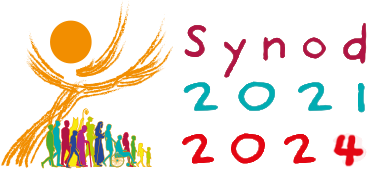The Synod on Synodality
Fr Ashley Beck, Parish Priest in the Archdiocese of Southwark, and Professor at St Mary's Twickenham writes this week
At this time the Catholic Church worldwide is going through the most important period of its life and history since the Second Vatican Council fifty years ago. Amidst immense challenges both in the internal life of the Church and what in many ways seems to be a dark time in the life of the world, Pope Francis invited the Church four years ago to become involved in preparations for a Synod of Bishops devoted to the idea of synodality itself. You can see all the details of this process, and summaries of much of what has appeared on the excellent synod website, https://www.synod.va. The word ‘synod’ simply means ‘walking together’ and that is what the whole Church has been trying to do.
There is no need to summarise what can be read in full there. I have not been involved in the process closely so here I will simply identify some important points. I have little knowledge of the Catholic Church in Scotland but I am now involved in the academic formation of men training to be deacons for all the Scots dioceses, who have made a great contribution to the formation programme for which I am partly responsible based at St Mary’s University in Twickenham, which also has a study centre in Edinburgh; (https://www.stmarys.ac.uk/courses/postgraduate/applied-catholic-theology).
As part of their formation diaconate students from the Scots dioceses study for our Foundation degree in Pastoral Ministry and our unique Master of Arts programme in Catholic Social Teaching https://www.stmarys.ac.uk/courses/postgraduate/catholic-social-teaching
The first thing we should remember is that the establishment of regular synods of bishops was one of the most important fruits of Vatican II. The one we are in engaged in is the sixteenth since the mid 60s and both worldwide synods and regional synods have been an important part of the life of the Church since then. Catholics who object to this synod are essentially objecting to what Vatican II was trying to set up: and on closer inspection they are often the same people as those who object to everything else the council achieved, particularly in the area of liturgy.
Secondly, what has been different about this synod is that it has been a much longer process because the Holy Father realised that if we want to look at the concept of synodality it is important to consult as many of the Catholic Faithful as possible. Even though in the autumn of 2021 the world was only emerging slowly from the Covid-19 pandemic, an unprecedented exercise was launched in parishes, dioceses, religious communities, Catholic educational institutions and other settings – principally meetings, online and written questionnaires – simply to listen to what ordinary Catholics might want to say about the life of the Church. Some of this was hurried because the timescales were tight, and many communities were fragile because of the pandemic; in many places the proportion of regular worshippers who chose to take part in the exercise was disappointingly small. We also have to be aware that for various reasons (some good, some bad) many clergy were unenthusiastic and did little to explain the process or enable people to be heard.
Thirdly, we need to recognise that historically this process, although it has distinctive aspects, is profoundly traditional. Throughout the history of the Church synods of bishops, like ecumenical councils, have been an important way of enabling the voice of the Holy Spirit to be heard. This time bishops in the synod have been joined by other clergy and by laypeople – the Church is quite entitled to develop its structures in this way: there is nothing to be frightened of.
There has been some confusion because the word ‘synod’ has been so important that it has been and is being used by other Christian communities in ways which differ from the practice of the Catholic Church. Two examples: in the Russian Orthodox Church, for much of its history the term ‘Holy Synod’ did not really mean a free assembly of bishops: it was simply the government department in the Tsarist government which controlled the church. Secondly, in the Anglican Communion (in the last fifty years) synods at various levels (deanery, diocese and nation) have been more or less modelled on parliamentary systems of secular government (or in the United States, the American constitution), characterised by often close votes, power wielded by majorities, deep political polarisation and what is more or less a ‘party’ system. The Holy Father and others involved have repeatedly made it clear that this second model followed by some of our brothers and sisters in Christ is not going to be followed by the Catholic Church.
This leads me to my fourth observation. The synodal process for us is characterised by two approaches. First a big emphasis, throughout the process, on prayer and listening to Sacred Scripture. This is not an ‘add-on’ like saying ‘Come Holy Spirit…’ at the beginning of parish council meetings; it is intended to be substantial, and the use of the Bible is not optional. Second we are expected to persevere in dialogue to reach a consensus, moving beyond the polarisation which can so easily poison the life of God’s people. Before becoming pope Francis promoted this method when he was Cardinal Archbishop of Buenos Aires, particularly in the important meeting of the Assembly of Bishops in Latin America (CELAM) which took place at Aparacida in Brazil in May 2007, in which he played a prominent role [the best picture of this, and the Holy Father’s present priorities, is to be found in the two books about him by Austen Ivereigh, The Great Reformer: Francis and the Making of a Radical Pope (New York: Henry Holt, 2014) and Wounded Shepherd: Pope Francis and His Struggle to Convert the Catholic Church (New York: Henry Holt, 2019)].
Fifthly, the feedback from parishes and dioceses worldwide, as you can see if you look at the documents on the synod website, did include both affirmation of the life of the Church and expressions of dissatisfaction about the running of the Church. In the latter category were unhappiness about often dictatorial and inadequate priests, continuing damage done because of scandals in relation to child abuse and lack of effective child protection, the marginalisation of laypeople and of lay women in particular, often uninspiring worship and preaching, poor formation offered to laypeople in parishes, a lack of real engagement with the needs of the poor and the oppressed and real problems with the formation of seminarians. All the synod documents so far, and many separate actions taken by the pope, have begun to address these issues; but the process is only beginning and it needs to involve all of us.
Finally, a running thread through the documentation which the synodal pathway has produced so far, and indeed in the teachings and catechesis of the Holy Father, has been the damage done by clericalism in the Church. What is meant by this is a distortion of the ministry of leadership given at ordination to deacons, priests and bishops which exalts worldly privilege and power, the enclosure of clergy within a separate and self-contained caste within the Catholic community and, above all, leads clergy to see themselves as unaccountable to everyone within the Church except the person immediately in authority over them (such as a priest to his bishop). The pope has repeatedly urged clergy to be aware of how damaging this is, and has removed many privileges and honorific titles which have enforced this culture. Clericalism has been particularly damaging as an element in the Church’s mishandling of the abuse of children within our communities [this is pinpointed very clearly in a recent study of the scandal for England and Wales, The Cross of the Moment (ed. P. Jones, M. Pound and C. Sexton, Durham University Centre for Catholic Studies, 2024, The-Cross-of-the-Moment_digital.pdf (durham.ac.uk)]. In all our parishes, wherever we are in the world, we need to address this problem.
I hope this brief survey can help you see why this is an exciting time, filled with the Holy Spirit, in the life of the Church. Loyalty to the Holy Father and the bishops and realising how the Spirit guides the Church and gives us strength, enables us to see this. Please pray for all those taking part and for the Holy Father.
Fr Ashley Beck
Ashley Beck is priest of the Archdiocese of Southwark in southern England, and an Associate Professor at St Mary’s University in Twickenham, where he is responsible for the Pastoral Ministry and Catholic Social Teaching Programmes; he also teaches liturgy at Allen Hall seminary in London. He is Editor of the Pastoral Review and a former President of the Catholic Theological Association of Great Britain.
For Septembers saints, as well as many others throughout the whole year, click here and visit our website.




